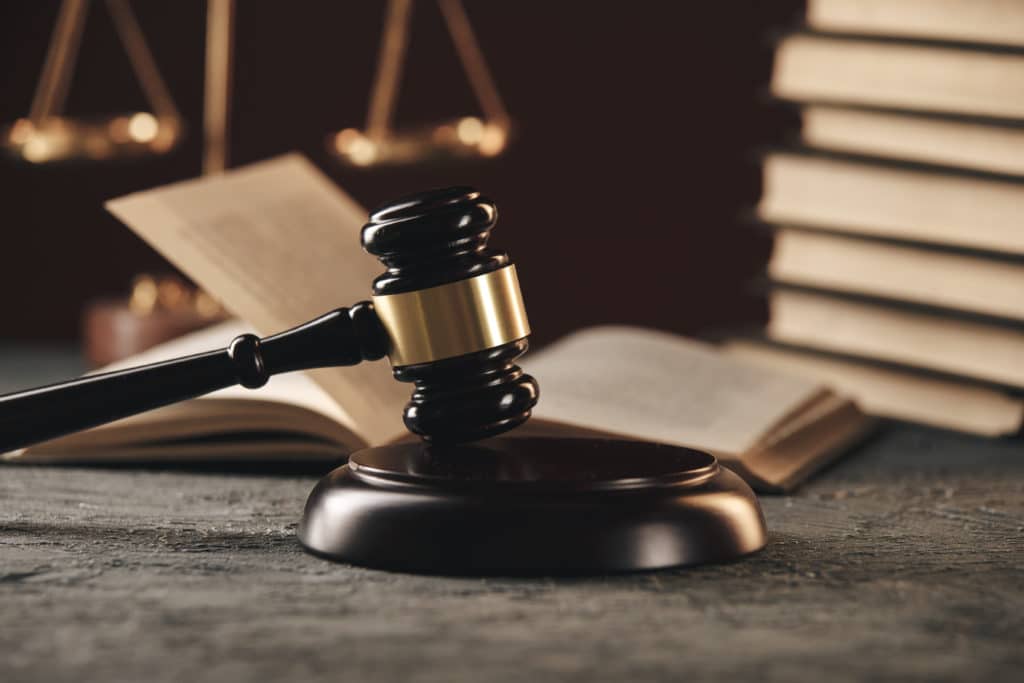During your divorce, you’ll hear all kinds of legal terms – and one you might need to familiarize yourself with is ex parte. Ex parte is a Latin term that means “for one party,” and it refers to motions, hearings or orders that judges grant at the request of only one party.
What is an Ex Parte Order?
During a divorce, ex parte orders are those that benefit only one party. Some examples of these types of orders include those that:
- Prevent one party from harassing or being near the other (such as a restraining order)
- Stop someone from taking a child out of the state or out of the country
- Prevent one party from removing or selling assets
Usually, these types of orders are only used when immediate action is necessary – and when there’s no time to notify the other party. They’re typically only available under extreme circumstances.
Top 10 Questions About Ex Parte Orders
 Many of our clients have questions about ex parte orders – either because they need a judge to issue one or because a judge has already issued one in their case. These are the top ten questions we answer.
Many of our clients have questions about ex parte orders – either because they need a judge to issue one or because a judge has already issued one in their case. These are the top ten questions we answer.
How Does an Ex Parte Order Work?
Typically, here’s how these orders work:
- One party’s attorney files a motion with the court to ask for something (such as a restraining order or to stop one party from moving a child out of state)
- The court agrees with the reasoning behind the order and issues it
- The other party is held responsible for obeying the order, and if he or she violates it, the court can take action
How Long Does an Ex Parte Order Last?
These types of orders are often temporary. Typically, they’re only good for 21 days – they last until the next hearing, which has to be scheduled within 21 days after filing for an ex parte order. At the next hearing, the judge will decide whether the order should become permanent.
What Situations Require an Ex Parte Order?
Emergency situations call for an ex parte order. Usually, they’re used in domestic violence and child abuse cases. However, they can also be used when one party is going to move a child outside of the state or when someone is destroying, selling or removing marital property that he or she shouldn’t touch.
How Do These Orders Work for Child Custody Issues?
There are several child custody situations in which this type of order may be necessary. Emergency custody orders can be important if there’s been a domestic violence or sexual abuse incident, or when a child is in danger. These are governed by California Family Code, Section 3064. They can be used in other cases, too, though, such as when:
- A child needs medical attention that requires both parents’ consent, but one parent refuses
- A parent has hidden the child or threatened to flee with the child
- A parent acts in a way that could harm a child (such as being charged with drunk driving while the child was in the car)
What Happens at an Ex Parte Hearing in California?
Everyone is entitled to tell his or her side of the story in court, but if you’re in a situation that requires an ex parte order, there’s no time to notify the other person involved – and that’s why judges grant temporary orders that have to be reviewed at a later date (usually within 21 days).
During an ex parte hearing, the judge will review the evidence you and your attorney have provided and decide whether the situation is urgent enough to issue an emergency order. The judge may ask you questions about what’s happening, too, but that doesn’t always happen.
Related: What to expect at an ex parte hearing
Can an Ex Parte Order Be Overturned?
You can get an ex parte order overturned. If the judge in your case issues a temporary order, you’ll receive notice of another hearing – the one in which the judge will decide whether to let the order expire or to make it permanent. You can contest the order and provide your own evidence and testimony, which the judge will take into account when making a decision.

What Does Ex Parte Judgment Mean?
Ex parte judgment is another term for ex parte order.
What Does Ex Parte Denied Mean?
Ex parte orders can be difficult to get. They’re usually reserved for the most serious circumstances, such as domestic violence, child abuse or child endangerment. If you request an order and the judge does not agree that you need one, your request will be denied.
Do I Have to Attend an Ex Parte Hearing?
If you are asking the court to issue an ex parte order, your attorney will let you know whether you have to attend a hearing. Sometimes your attorney will simply submit documents and evidence for the court to review. If the court has issued an ex parte order against you, you will have to attend the next scheduled hearing so you can argue against it.
What Happens if You Don’t Show Up?
When the court issues an order against you and you fail to appear at the next hearing, the judge can turn the temporary order into a permanent one without your input.
What Happens After an Ex Parte Hearing?
If the judge issues a temporary order, the court will hold another hearing (usually within 21 days) where both parties are present – the person who filed the order and the person being held accountable under the order. At the next hearing, the judge will decide whether the order should become permanent.
Do You Need to Talk to an Attorney About Ex Parte Orders?
If you need help from an attorney, either because you need an ex parte order or because a court has issued one against you, call us at 310-820-3500 to schedule a free consultation. We’ll answer your questions and develop a strategy that gets you the best possible outcome.



